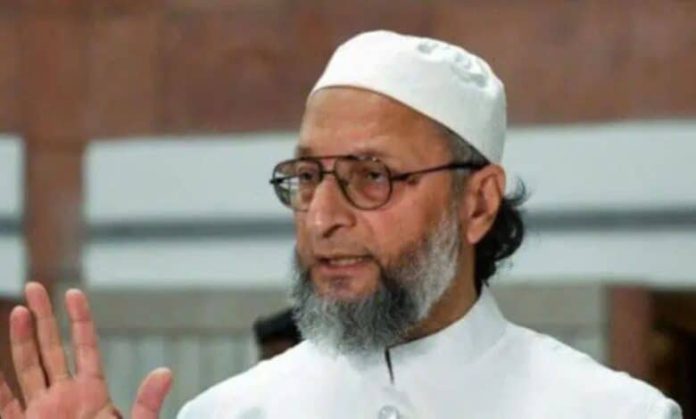Hyderabad — Following the Bombay High Court’s decision to acquit all 12 individuals previously convicted in the 2006 Mumbai train blasts case, All India Majlis-e-Ittehadul Muslimeen (AIMIM) president and Hyderabad MP Asaduddin Owaisi has voiced serious concerns over the failure of the justice system, reported the Siasat.
The High Court, in a landmark judgment delivered on Monday, stated that the prosecution had “utterly failed to prove the case,” leading to the acquittal of all the accused. The bench, comprising Justices Anil Kilor and Shyam Chandak, highlighted the lack of credible evidence, unreliable witness statements, and questionable confessional statements, which appeared to have been obtained under duress.
Reacting to the verdict, Owaisi criticized both the investigative agencies and the media, stating that in high-profile cases, law enforcement often begins with the assumption of guilt. “In such cases where there is a public outcry, the approach by police is always to first assume guilt and then go from there,” he said in a post on X .
He also condemned the role of the media in shaping public perception and pre-determining guilt. “Police officers hold press conferences in such cases, and the way the media covers the case, it kind of decides the guilt of a person. In many such terror cases, investigating agencies have failed us miserably,” he wrote.
Targeting the Congress party, which was in power in Maharashtra during the blasts in 2006, Owaisi said they must be held accountable for ignoring allegations of custodial torture and human rights violations. “Please remember which parties were ruling Maharashtra in 2006. They are also responsible for disregarding complaints of torture,” he said, adding that popular TV news anchors acted as self-appointed judges at 6 pm and 9 pm.
The AIMIM leader lamented the loss of nearly two decades of the lives of the accused, many of whom were incarcerated for 17 to 19 years without ever stepping outside prison even once during that period. “Innocent people are sent to jail and then years later when they are released from jail, there is no possibility for reconstruction of their lives,” Owaisi said, noting that some of their family members died during their imprisonment.
The Bombay High Court’s ruling also cast doubt on the investigative process itself. The bench observed that even the type of bombs allegedly used in the attacks was not clearly established. “The prosecution failed to even bring on record the type of bombs used in the alleged crime. Hence, the evidence of recovery is not sufficient to prove the offence against the accused,” the judgment stated.
The confessional statements, which were a significant part of the prosecution’s case, were also rejected by the High Court. The court found them incomplete, formulaic, and likely extracted under torture. “The accused persons have proved their case that torture was inflicted at the time,” the bench remarked.
Of the 12 accused, five had been sentenced to death and seven to life imprisonment by a special court in 2015. The High Court has now ordered that all 12 be released immediately, provided they are not wanted in any other case.
The verdict marks a major embarrassment for the Maharashtra Anti-Terrorism Squad (ATS), which led the investigation, and raises troubling questions about the misuse of anti-terror laws, wrongful incarceration, and the lack of accountability in the Indian justice system.




